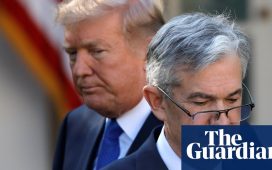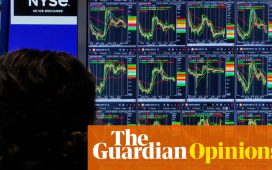The US Federal Reserve signaled a slowdown in its fight against soaring inflation on Wednesday, announcing its smallest hike in interest rates in almost a year.
After its latest meeting, the Fed announced a quarter-point increase in its benchmark interest rate to a range of 4.5% to 4.75%, the smallest increase since March last year. “Inflation has eased somewhat but remains elevated,” the Fed said in a statement adding that “ongoing increases” will be appropriate as it seeks to bring prices down.
“We covered a lot of ground, and the full effects of our rapid tightening so far are yet to be felt. Even so, we have more work to do,” said Fed chair Jerome Powell.
Inflation in the US has been running at levels unseen since the 1980s, triggering a cost of living crisis as the price of everything from eggs to gas and rent has shot up.
In order to tamp down inflation the Fed has aggressively hiked rates as it seeks to cool the economy and bring prices back under control.
A year ago the Fed rate – which affects the interest rates on everything from business and personal loans to mortgages and credit card rates – was close to zero. After the most rapid series of rises since the 1980s, it is now at a level last seen in 2007.
There are signs that prices are coming down. In December, the annual rate of inflation fell to 6.5% from 7.1% in the previous month, the sixth straight month of yearly declines and well below the peak of 9.1% it hit in June, its highest rate since 1982.
Consumer spending – the largest driver of the economy – fell 0.2% from November to December. The housing market has slowed and many of the major tech companies have announced large job cuts as they have moved to rein in spending.
But inflation remains well above the Fed’s annual target rate of 2% and the central bank has said it will keep rates high until price stability is achieved. The Fed also continues to worry about the jobs market. The unemployment rate was 3.5% in December, a 50-year low and on Wednesday the labor department announced there were 11m job openings in the US in December – almost two available jobs for every person looking for one and an increase from November.
The tight labor market has driven up wages and Powell, has made clear that the central bank believes rising wages threaten to spur on inflation – a so-called wage-price spiral. “You don’t see that yet, but the whole point is, once you see it, you have a serious problem. That means that effectively in people’s decision-making, inflation has become a real salient issue,” said Powell. “That is what we can’t allow to happen.”









